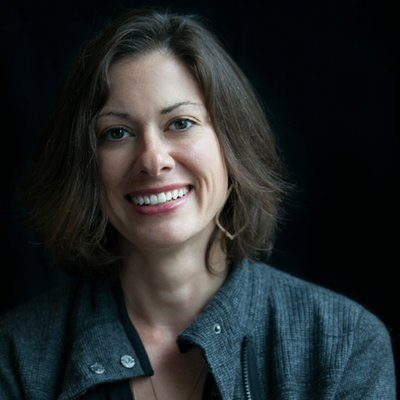“The Lord’s Tower Had Many Fine Rooms,” by Sarah Cypher (Fiction ’20)
Sarah Cypher, a 2020 fiction graduate, was recently featured in the LEON Literary Review. Read an excerpt of “The Lord’s Tower Had Many Fine Rooms,” a selection from a novel-in-progress, below:

The Lord’s Tower Had Many Fine Rooms (excerpt from the novel The Skin and Its Girl)
I met my father’s house in the scorching green heart of an Oregon summer.
This house was a sort of enchantment. It had a gambrel roof that softened the crisp eaves and long porch. Inside, it was full of hardworking windows and honey-colored wooden floors. I’d never seen a place so clean. A weekly housekeeping service left the evidence of their work only in the absences: no crumbs, no smears, no laundry. He’d bring me back from the doctor, where people kept taking long tubes of my blood and little chips of my body, and the house’s very air would feel different, as though it had been shaken out and scrubbed; floorboards giving off an amiable gleam as though these rooms were friendly but kept forgetting who we were.
Only his furniture was old and personal. Its walnut feet were heavy like wolf paws, and under its patina, the vanity table in my second-story bedroom had a rippling muscularity, as though it might go padding through the house at night. He decorated with the family relics, including a pair of antique cannonballs, and also gave me his mother’s crib, telling me only that the row of tiny punctures along the rail were from her teeth. He put it in my room and told me everything here was mine.
I stood on the mattress at night, feeling the teeth marks in the wood, tracing with my fingers everything I could reach. The caulking around the bottom windowpane was whiter and rougher than the caulking around the top. This room, in other circles, had achieved a kind of fame. But it didn’t feel like the site where he and my mother had wept and shouted until she’d thrown one of the cannonballs through the glass. No, the room felt serene, even stable, like the surface of a frozen pond.
What to make of this all-of-a-sudden father?
He had been to medical school, before an accident that had taken his hand. We spent hundreds of cool hours in his basement office, a room that contained most of his life. The desk lamp was on ten hours at a time throughout his dim autumn workdays, spotlighting a coaster on his desk that always held a mug and drowned teabag. The only other place for adults to sit was a deep chair in the corner whose arm held an open New Yorker. His library took up all the other walls—law books and medical texts that stood in beautiful, soldierly ranks around his desk, giving off the smell of glued leather. Despite the susurration of rain and damp earth around the foundation, the air was warm and dry, incubating what felt like all the knowledge in the world.
My mother helped often, driving down from the hill to show him what to do with the baby he’d amputated so carefully from her life. Even though the court had agreed to her petition for two days’ custody a week, she came late most evenings to help with dinner and end-of-the-day chores, in the hours when my father’s phantom left hand hurt the worst. She moved between the cutting board and steaming pan, her face a mask I’d never seen before. He sat with his wrist on the granite countertop. Propping a small mirror against the flushed skin of his left inner forearm, he stared hard at the reflection of his right hand in the mirror as it played invisible piano keys, trying to convince his brain that its sinister twin hadn’t been crushed under a falling motorcycle and removed.
Those evenings, even though my mother never set foot beyond the living room, he always turned on the tall lamp in the basement office, the one that held the New Yorker magazine on the chair. Strange, that magazine was the only item in the house that never got put away; or more truly, it was in its right place already. The fold of its binding was almost gone, and its covers were rippled and stiff with age, showing a pastel map called “New Yorkistan.” Its date was December 10, 2001, the week my mother had thrown the cannonball through the upstairs window and moved out.
Read the passage in its entirety here: http://leonliteraryreview.com/issue-5-sarah-cypher/



